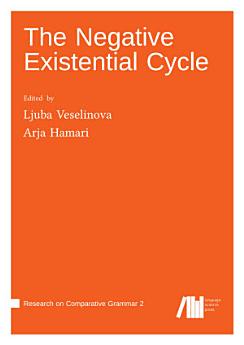The Negative Existential Cycle
Tungkol sa ebook na ito
The collection presented here features detailed studies of several language families such as Bantu, Chadic and Indo-European. A number of articles focus on the micro-variation and attested historical developments within smaller groups and clusters such as Arabic, Mandarin and Cantonese, and Nanaic. Finally, variation and historical developments in specific languages are discussed for Ancient Hebrew, Ancient Egyptian, Moksha-Mordvin (Uralic), Bashkir (Turkic), Kalmyk (Mongolic), three Pama-Nyungan languages, O’dam (Southern Uto-Aztecan) and Tacana (Takanan, Amazonian Bolivia). The book is concluded by two chapters devoted to modeling cyclical processes in language change from different theoretical perspectives.
Key notions discussed throughout the book include affirmative and negative existential constructions, the expansion of the latter into verbal negation, and subsequently from more specific to more general markers of negation. Nominalizations as well as the uses of negative existentials as standalone negative answers figure among the most frequent pathways whereby negative existentials evolve as general negation markers. The operation of the Negative Existential Cycle appears partly genealogically conditioned, as the cycle is found to iterate regularly within some families but never starts in others, as is the case in Bantu. In addition, other special negation markers such as nominal negators are found to undergo similar processes, i.e. they expand into the verbal domain and thereby develop into more general negation markers.
The book provides rich information on a specific path of the evolution of negation, on cyclical processes in language change, and it show-cases the historical-comparative method in a modern setting.
Tungkol sa may-akda
Ljuba Veselinova is a Professor of linguistics at the University of Stockholm. Her main interests lie in linguistic typology, the shaping of grammar and lexicon via processes of grammaticalization and lexicalization, numerical concepts and their linguistic expressions, and cyclical processes in language change.
Arja Hamari is a University Lecturer for Finnish and Finno-Ugric Languages at the University of Turku.






